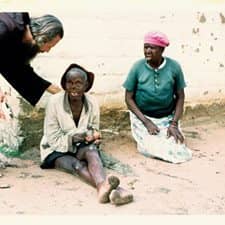First off – the December 25th thing.
It was common to assume Christians co-opted this date from elsewhere. I reject that theory, despite its popularity, but will probably address it in its own thread, as it has a lot of supporters.
As for the trappings ... largely superficial and the most popular relatively late. Christmas trees – 16th century – the practice of decorating trees goes back longer, but the Christmas tree gained traction in North Europe and spread from there.
The more useful question with any pagan practice is, what is its basis? is it harmful?
If not, then what's the fuss?
Take the Gnostic accounts of the crucifixion, for example. He was taken off the cross unconscious. He was an angel on the cross, not a man. It was not Him, it was another ... these I consider harmful in that they detract from the message.
The shepherds at the nativity ... the Three Wise Men ... without them, the basic message is unaltered. Luke, to be fair, would have to work a bit harder, his shepherds were part of his social justice theology, but nevertheless.
The celebration of the Winter Solstice or the Vernal Equinox is regard as 'universal' and belongs to the world rather than the property of pagans. The basis is not invented, they're astronomical observations.
Spring is to do with birth because when else, naturally, would you locate it? The Passover is determined as Spring, probably for the same reason.
There are Christian mystical understandings from the very early era that date the birth of Jesus to winter, because that's nine months from His conception, in the Spring, which can be dated, I think, based on Biblical evidence, but I rather read it as God works in and through the word, 'spring' is symbolically the 'right time' ... all the 'rebirth' stuff is not grafted onto Spring, rather, it's intrinsic to it. It's what Spring is.
That Jesus died at the same time He was conceived fitted Judeo-Christian mystical speculation.
I understand that reasoning is perhaps a bit deep and Hermetic for most, but it's sufficient for me. I've always said my Christianity is the 'mystical manifest in the mundane'.
Without the pagan rituals that they lay people love....you are gonna lose a lot of them.
OK. I think you're making rather huge assumptions there, but no matter ... Yes, the Church is full at Easter/Christmas, I've taken non-Christians to Midnight Mass ...
Then of course when Christianity entered other areas of the world the missionaries accepted a little mixing of voodoo or whatever...as long as they accepted Jesus n Mary too...
Did they?
I don't hold such a tight distinction between 'the natural' and 'the supernatural' – I think they infuse each other. If someone sees through the veil of the image, that's fine by me.
... and watering down the message ...
Did we? LOL, you, accuse us ... of watering down the message?


